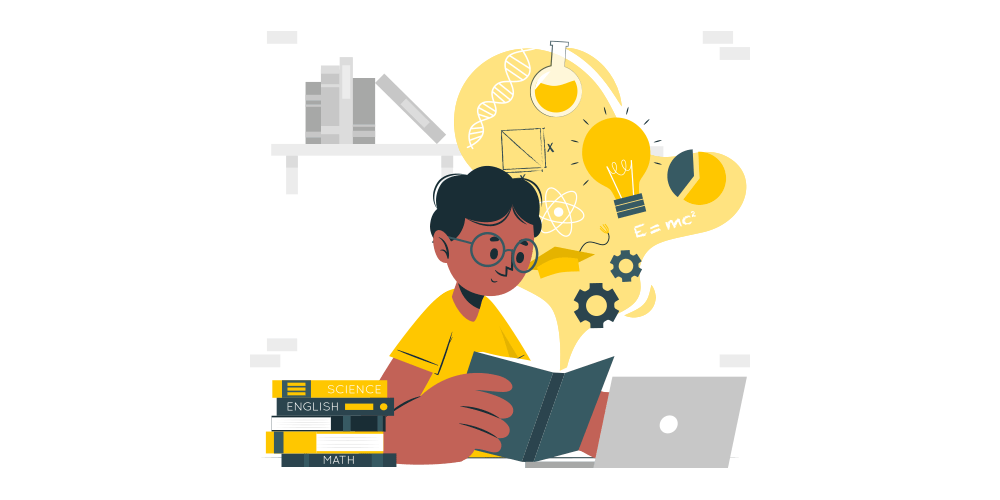Introduction
In today's rapidly evolving digital landscape, artificial intelligence (AI) is no longer a futuristic concept but a present reality that shapes how we work, communicate, learn, and live. From voice assistants and recommendation systems to educational tools and creative applications, AI technologies increasingly influence our daily experiences.
For today's children, AI will be an even more integral part of their future. They are growing up in a world where AI is embedded in many of the tools and systems they interact with, often without their awareness. As parents and educators, we have a responsibility to prepare the next generation not just to be consumers of AI technologies, but to be informed, critical, and ethical participants in an AI-driven society.
This is where AI literacy becomes crucial. Just as traditional literacy empowers individuals to read, write, and comprehend text, AI literacy equips them with the knowledge and skills to understand, use, and critically evaluate AI systems.
Why AI Literacy Matters
The growing prominence of AI in our society brings both tremendous opportunities and significant challenges. Here's why developing AI literacy is becoming as essential as learning to read and write:
Informed Decision-Making
Children need to understand when they are interacting with AI, what data is being collected, and how AI systems might influence their choices. This awareness helps them make informed decisions about their digital interactions.
Critical Evaluation
AI systems can perpetuate biases, spread misinformation, or present information in misleading ways. AI literacy enables children to critically evaluate the outputs of AI systems rather than accepting them as objective truth.

Future-Ready Skills
Many future careers will involve working alongside AI systems. Understanding AI's capabilities and limitations prepares children for a workforce where human-AI collaboration will be commonplace.
Ethical Awareness
AI raises complex ethical questions about privacy, fairness, transparency, and accountability. AI literacy helps children develop a framework for thinking about these issues and making responsible choices.
"In a world increasingly shaped by algorithms, understanding how AI works and impacts our lives isn't just a technical skill—it's a form of empowerment."
Creative Empowerment
When children understand AI as a tool rather than magic, they can leverage it for creative problem-solving and expression. AI literacy transforms children from passive consumers to active creators and shapers of technology.
Defining AI Literacy
AI literacy encompasses a range of knowledge and skills that help individuals understand and interact effectively with AI systems. For children, age-appropriate AI literacy might include:
Basic Understanding
Recognizing what AI is and how it differs from other technologies. This includes understanding that AI systems learn from data and make predictions or decisions based on patterns they identify.
Recognition Skills
Identifying when they are interacting with AI (e.g., voice assistants, recommendation systems, content filters) and understanding that these systems may have limitations and biases.
Critical Thinking
Questioning and evaluating the information, suggestions, or decisions provided by AI systems. This includes considering potential biases, limitations, or manipulative aspects of AI-driven technologies.
Practical Skills
Knowing how to effectively use AI tools for learning, creativity, and problem-solving, while maintaining appropriate boundaries and safety measures.
Ethical Awareness
Understanding the ethical implications of AI, including issues of privacy, consent, fairness, and the potential societal impacts of AI technologies.
AI Literacy in Early Education
While some aspects of AI literacy may seem advanced for young children, there are developmentally appropriate ways to introduce these concepts from an early age:
Foundational Concepts
Young children can begin to understand concepts like patterns, prediction, and the difference between human and computer intelligence through play-based activities and simple explanations.
Age-Appropriate Transparency
When children interact with AI-powered educational tools like WonderBuddy, parents and educators can point out that the technology is learning from their interactions and adapting to help them learn better.

Critical Questions
Even young children can be encouraged to ask questions like "How does it know that?" or "Why did it suggest this?" when interacting with AI systems, laying the groundwork for critical thinking.
Balancing Technology
Teaching children that while AI tools can be helpful and fun, they should be balanced with human interaction, outdoor play, and diverse learning experiences.
Practical Approaches to Building AI Literacy
Here are some concrete ways parents and educators can foster AI literacy in children:
Explicit Discussions
Talk openly about when and how AI is being used in the technologies children encounter. Explain in simple terms how these systems work and what their limitations might be.
Hands-on Experiences
Provide opportunities for children to experiment with kid-friendly AI applications that make the technology's workings more transparent. Look for tools that explain how they make recommendations or decisions.
Critical Media Literacy
Help children evaluate the content they encounter online, discussing how algorithms might be showing them certain videos, games, or information based on their past behavior.
"The best way to prepare children for the future is not to protect them from technology, but to equip them with the knowledge to use it wisely."
Creative Projects
Engage children in simple AI-related projects that demonstrate concepts like pattern recognition or prediction. This could involve sorting activities, simple programming games, or experimenting with child-friendly AI drawing tools.
Ethical Discussions
Initiate age-appropriate conversations about fairness, privacy, and the responsible use of technology. Ask questions like "Is it okay for a computer to know this about you?" or "How would you feel if this decision was made by a computer instead of a person?"
Challenges and Considerations
Building AI literacy in children comes with several challenges that parents and educators should be mindful of:
Balancing Awareness and Fear
It's important to educate children about AI without instilling unnecessary fear or anxiety. The goal is to empower, not alarm.
Developmental Appropriateness
AI concepts should be introduced in ways that match children's cognitive development. Abstract concepts may need to be simplified or presented through concrete examples for younger children.
Equitable Access
Not all children have equal access to technology or guidance in using it. Education systems must work to ensure that AI literacy does not become another dimension of the digital divide.
Rapidly Evolving Field
AI technologies are developing at an unprecedented pace. Parents and educators need ongoing education themselves to keep up with new developments and their implications for children.
Conclusion
As AI becomes increasingly embedded in our world, AI literacy is becoming an essential component of preparing children for their future. By fostering an understanding of AI's capabilities, limitations, and ethical dimensions, we empower the next generation to navigate an AI-infused world with confidence, critical thinking, and ethical awareness.
At WonderBuddy, we believe in transparent, ethical, and educational integration of AI in children's learning experiences. Our approach involves not only using AI to enhance learning but also teaching children about AI itself in age-appropriate ways.
By building AI literacy from an early age, we're helping to ensure that children become not just consumers of technology, but informed, critical, and ethical digital citizens who can shape the future of AI in society.



